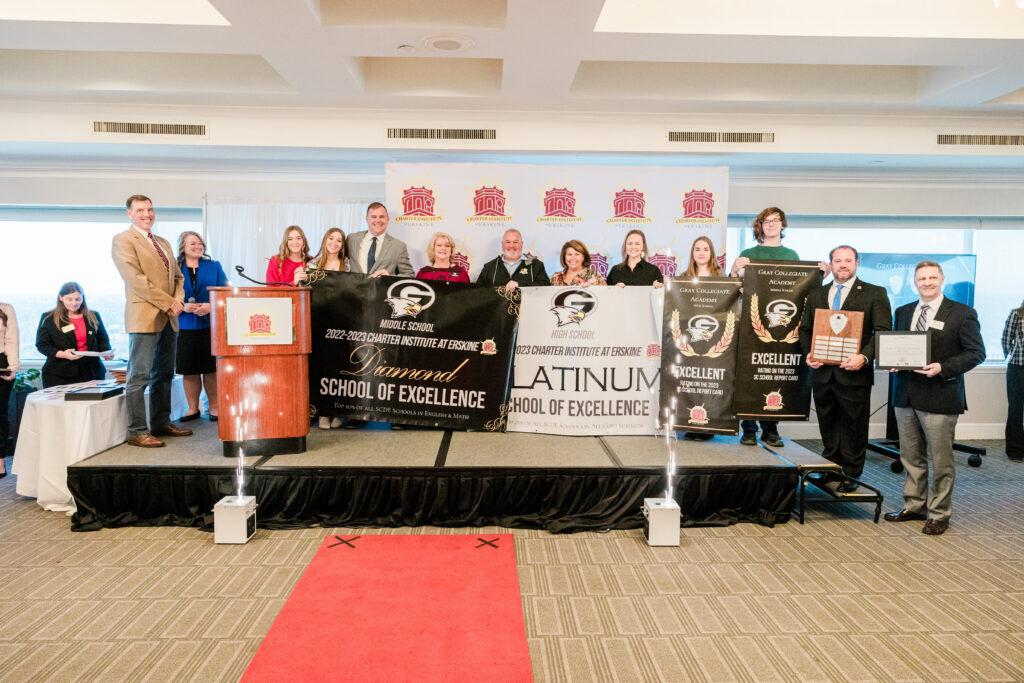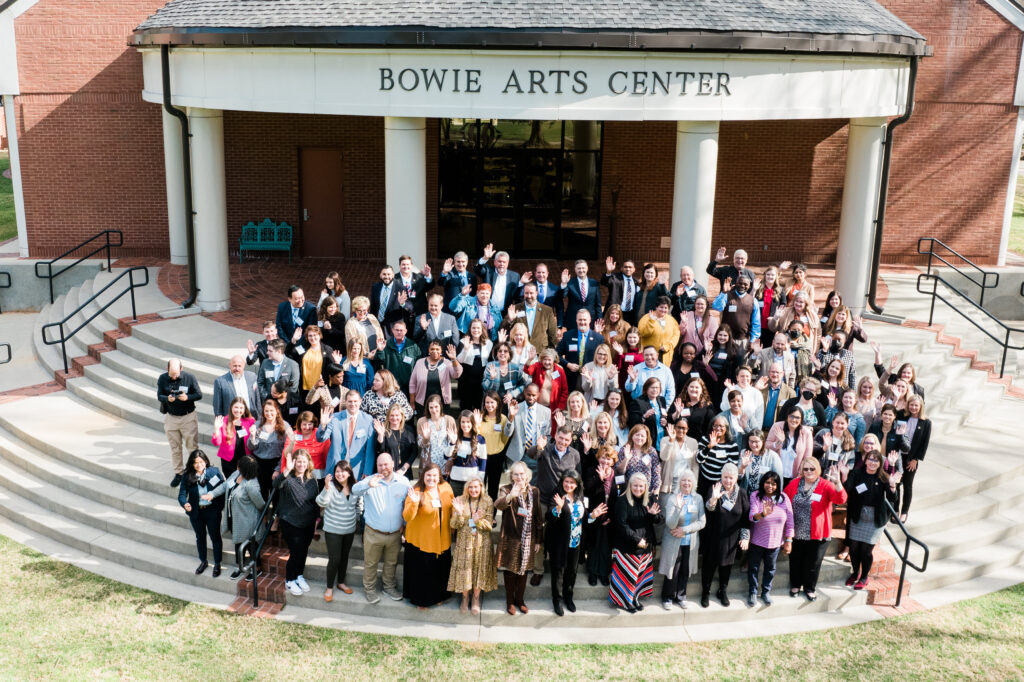What are charter schools?
At the Charter Institute at Erskine, we believe public schools should have the freedom to be more creative, innovative and adaptive to the needs of the students they serve.
Serving over 25,000 students through South Carolina, we are dedicated to empowering our schools to be the best they can be.

Let's Define Charter Schools

A public charter school is a non-religious, tuition-free school of choice that offers new, innovative and flexible ways of educating children.
Rather than operating according to the regulations of a district school board, charter schools operate by sponsorship. The school is accountable to the authorizer who sponsors its charter and is governed by its own independent school board.
Charter schools are public schools, but they have some features that set them apart from private schools and traditional methods of public education. Here are some key characteristics of charter schools:
Open to all children
No tuition or cost to attend
No special entrance requirements
Flexibility with staffing, curriculum and academic focus
Unlike public schools that draw students from assigned areas, families in South Carolina can choose to send their children to any public charter school.
How do charter schools work?
The central belief behind charter school education is that parents should have access to multiple school choice options that offer innovative education methods within the public school system.
In exchange for increased education opportunities for students and freedom to explore diverse teaching methods, charter schools designate new forms of accountability. The charter must be sponsored by an authorizer, such as a local school district, South Carolina’s Charter Schools Program or an institute of higher learning — in our case, Erskine College.
Authorizers, like the Charter Institute at Erskine, oversee the charter school’s mission, academic goals, financial responsibilities and accountability requirements to ensure they meet the terms of their “charter.”
How Are Charter Schools Funded?
South Carolina state law allocates public funds based on student enrollment in a charter school. Schools sponsored by the Charter Institute at Erskine operate under a contract and pay a fee of no more than 2% for our sponsorship.
We use these funds to operate and provide comprehensive services and support to the schools and students we serve.
Our financials are completely transparent, and we publish them on our website annually.

Why Charter Schools?

Charter schools make decisions that promote educational excellence and best serve students. This freedom benefits students, families, teachers and the local community in the following ways:
- Flexibility: Charter schools have a say in the curriculum they teach and how they teach it, allowing for new and innovative educational opportunities and the adoption of newer learning methods.
Adaptability: The curriculum can be adjusted to meet the needs of the school’s specific student population, closing potential achievement gaps.
Personalization: Charter schools can adopt a theme or focus on a particular strength, such as Science, Technology, Engineering or Math (STEM) education, college preparedness, classical education or performing arts.
Professional opportunities: Charter schools allow teachers to take responsible risks in creating new learning opportunities at the school site.
Who Can Sponsor a Charter School in South Carolina?
Any interested party, including local community members, teachers and parents, can start a charter school. However, they must have an approved sponsor, such as:
A local School District in which the proposed school is located
The South Carolina Public Charter School District
A public or independent institution of higher learning that is registered as a Sponsor with the South Carolina Department of Education, like the Charter Institute at Erskine
Since May 2017, the Charter Institute at Erskine has been registered with the South Carolina State Department of Education to sponsor public charter schools.
The Charter Institute at Erskine is statutorily responsible for the review of applications for new charters, granting charters and overseeing the accountability for the schools in the Institute’s portfolio. We take pride in providing a high level of support to empower the success of the schools and students we serve.

Explore New Opportunities With Charter Institute at Erskine
When you partner with Charter Institute at Erskine, you can expect outstanding support, intentional communication and active engagement. If you have further questions about public charter schools or are interested in applying for or transferring a charter, contact us for more information